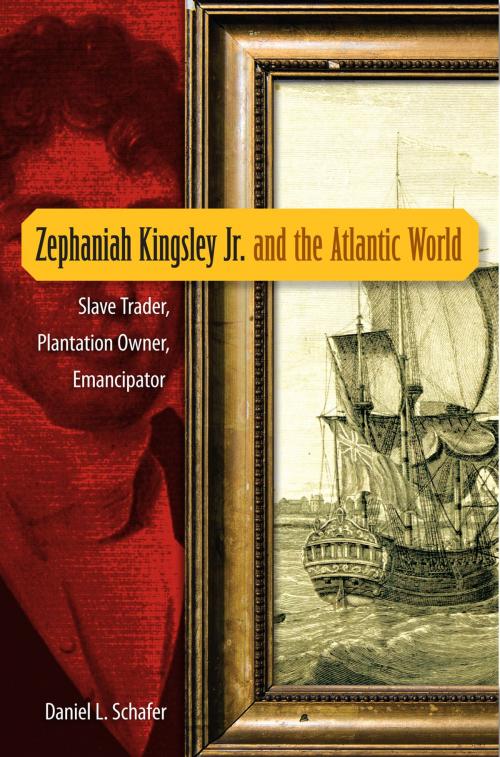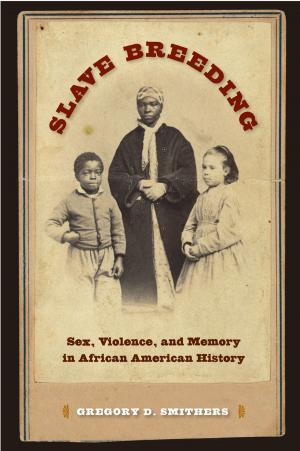Zephaniah Kingsley Jr. and the Atlantic World
Slave Trader, Plantation Owner, Emancipator
Nonfiction, Social & Cultural Studies, Social Science, Discrimination & Race Relations, History, Americas, United States, Biography & Memoir| Author: | Daniel L. Schafer | ISBN: | 9780813047799 |
| Publisher: | University Press of Florida | Publication: | November 12, 2013 |
| Imprint: | University Press of Florida | Language: | English |
| Author: | Daniel L. Schafer |
| ISBN: | 9780813047799 |
| Publisher: | University Press of Florida |
| Publication: | November 12, 2013 |
| Imprint: | University Press of Florida |
| Language: | English |
Zephaniah Kingsley is best known for his Fort George Island plantation in Duval County, Florida, now a National Park Service site, and for his 1828 pamphlet, A Treatise on the Patriarchal System of Society, that advocated just and human treatment of slaves, liberal emancipation policies, and granting rights to free persons of color. Paradoxically, his fortune came from the purchase, sale, and labor of enslaved Africans.
In this penetrating biography, Daniel Schafer vividly chronicles Kingsley's evolving thoughts on race and slavery, exploring his business practices and his private life. Kingsley fathered children by several enslaved women, then freed and lived with them in a unique mixed-race family. One of the women--the only one he acknowledged as his "wife" though they were never formally married--was Anta Madgigine Ndiaye (Anna Kingsley), a member of the Senegalese royal family, who was captured in a slave raid and purchased by Kingsley in Havana, Cuba.
A ship captain, Caribbean merchant, and Atlantic slave trader during the perilous years of international warfare following the French Revolution, Kingsley sought protection under neutral flags, changing allegiance from Britain to the United States, Denmark, and Spain. Later, when the American acquisition of Florida brought rigid race and slavery policies that endangered the freedom of Kingsley's mixed-race family, he responded by moving his "wives" and children to a settlement in Haiti he established for free persons of color.
Kingsley's assertion that color should not be a "badge of degradation" made him unusual in the early Republic; his unique life is revealed in this fascinating reminder of the deep connections between Europe, the Caribbean, and the young United States.
Zephaniah Kingsley is best known for his Fort George Island plantation in Duval County, Florida, now a National Park Service site, and for his 1828 pamphlet, A Treatise on the Patriarchal System of Society, that advocated just and human treatment of slaves, liberal emancipation policies, and granting rights to free persons of color. Paradoxically, his fortune came from the purchase, sale, and labor of enslaved Africans.
In this penetrating biography, Daniel Schafer vividly chronicles Kingsley's evolving thoughts on race and slavery, exploring his business practices and his private life. Kingsley fathered children by several enslaved women, then freed and lived with them in a unique mixed-race family. One of the women--the only one he acknowledged as his "wife" though they were never formally married--was Anta Madgigine Ndiaye (Anna Kingsley), a member of the Senegalese royal family, who was captured in a slave raid and purchased by Kingsley in Havana, Cuba.
A ship captain, Caribbean merchant, and Atlantic slave trader during the perilous years of international warfare following the French Revolution, Kingsley sought protection under neutral flags, changing allegiance from Britain to the United States, Denmark, and Spain. Later, when the American acquisition of Florida brought rigid race and slavery policies that endangered the freedom of Kingsley's mixed-race family, he responded by moving his "wives" and children to a settlement in Haiti he established for free persons of color.
Kingsley's assertion that color should not be a "badge of degradation" made him unusual in the early Republic; his unique life is revealed in this fascinating reminder of the deep connections between Europe, the Caribbean, and the young United States.















